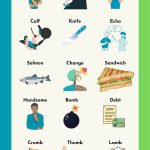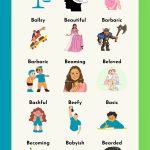If you’re looking for some activities and games for making predictions, along with lesson plans and worksheets, then you’re in the right place. Keeping on reading for all the details you need to know about telling the future and predicting games.

Making prediction activities
Making Predictions Games and Activities
Let’s get into the best prediction activities and games for ESL.
#1: Just One Question about the Future
Just One Question is a survey style activity that’s ideal for getting students to tell the future. The way it works is that in pairs, students have to think of some interesting questions they could ask their classmates about the future.
Then, they choose the best one and survey at least 10 of their classmates, taking notes about what they find out. After that, give students some time to analyze their results and prepare a few sentences to share with the class about what they found.
Do you want to try it out? You can find more information about this predicting game here: Just One Question ESL Survey Activity.
#2: Picture Prompt Prediction Activity
If you can find an interesting picture with lots of action going on, it can be a nice warmer activity on your lesson about the future. Students can predict what’s going to happen next, first with a partner and then you can elicit some answers from the class to round off the activity.
Do you want to know more about this quick ESL warm-up? More details here about one of the best predicting games: ESL Picture Prompt.
#3: Task-Based Activities about the Future
I love to include a few task-based activities in all my language teaching courses. They’re ideal because students have some degree of freedom to choose what they want to learn. In this case, it’s easy to set up an activity where students have to make some predictions about the future. This can be a nice part of a New Year’s Lesson Plan.
I put students into groups of 3-4 and ask them to select a general area of interest. For example transportation, work, politics, travel, food, etc. Then, students have to make some predictions about what will happen in those areas during the next 20 years (or whatever time period you choose). Finally, students have to make a short presentation to the class about what they think.
Do you want to know more about this style of language teaching? Check out all the details here: Task Based Language Teaching.
- Amazon Kindle Edition
- Bolen, Jackie (Author)
- English (Publication Language)
- 87 Pages - 10/24/2019 (Publication Date)
#4: Future Predictions Board Game
In real life, I’m all about playing board games which is why I like to use them in my TEFL classes as well. They’re fun, engaging and most students really seem to enjoy playing them. The good news is that you can often find them in the teacher’s resource book that may accompany your textbook.
But if not, it’s super easy to make your own. In this case, you can fill the board with questions that will elicit students’ opinions about what will happen in the future.
Do you want to give it a try in your English classes? You can find out everything you need to know right here:
#5: Error Correction Relay
#6: Conversation Starters for Making Predictions
If you tell your students to make some predictions about the future with a partner, you may be met with blank silence. It’s usually not the students’ fault, it’s usually that there isn’t enough structure for them to really know what they’re supposed to do.
A better way is to give students a list of questions that they can talk about with their partner. In this case, it’d be questions that would lead to some predictions about the future. For example:
- What will happen in the next US election?
- Do you think people will travel by flying cars in your lifetime?
- Will the economy look very different in (your country) in 1o years from now?
- What kinds of jobs will people be doing in 50 years from now?
#7: Telling the Future Videos
The good news for English teachers today is that there are a million and one ESL videos on YouTube and English Central. You can find one for any topic, grammar point or vocabulary set, including making future predictions.
However, there’s certainly more to it than just pressing play and being done! Instead, you’ll want to do some pre and post watching activities to get the most value out of it. Or, you could even design an entire lesson around a video. Here are some more ideas:
#8: Verb Activities
Making predictions about the future is ALL about the future verb tenses. The actual grammar is quite simple in most cases, but of course, students still need lots of practice with it.
If you want to give your students some solid practice with using verbs, then you’ll want to check these out here: ESL Verb Activities.
#9: Dictogloss
This is a challenging listening and speaking (or writing) activity that I like to use for predictions about the future. The way it works is that you can find a passage (or write your own) about someone making future predictions. Then, put students into pairs and read it out quite quickly.
The students have to work together to try to recreate what they heard, either by writing or speaking. Then, read it again and they can revise their first draft. Finally, students can compare what they have to the original.
Do you want to give it a try in you TEFL classes? You can see all the details here: ESL Dictogloss Activity.
- Amazon Kindle Edition
- Bolen, Jackie (Author)
- English (Publication Language)
- 85 Pages - 02/02/2020 (Publication Date)
#10: Just a Minute ESL Speaking Activity
This is a fun, challenging activity for intermediate and advanced level students. The way it works is that each student has to talk for one minute about a certain topic without stopping. Then, the other three members of their group who are listening each have to ask a follow-up question.
In this case, you could get students to make some predictions about the future in a certain area. They could even choose whatever they’re most interested in: sports, politics, travel, work, economics, etc.
Find out more details here: Just a Minute ESL Speaking Activity.

ESL predicting activities
#11: How to Teach English Grammar
If you want to know how to plan an ESL grammar lesson like using future forms to make predictions, then you’ll want to check this out. It gives you the step-by-step details you need to know for how to plan this style of lesson, including lead-in or setting the context, teaching, practice and more.
Check it out right here: How to Teach ESL Grammar.
#12: Current Events Presentation
I love to have my more advanced students do a presentation related to current events. It’s challenging but interesting to hear what students think about things happening in the world around them. You could add in a section to the assignment that asks students to predict what will happen in the future related to this story. Or, what impact it will have.
You can see more details here: ESL Current Events Presentation.
- Amazon Kindle Edition
- Bolen, Jackie (Author)
- English (Publication Language)
- 88 Pages - 02/16/2020 (Publication Date)
#13: Running Dictation
This is one of my favourite TEFL activities because it covers a range of skills, it’s interactive and challenging, and it also gets students up and out of their seats moving around the classroom. In this case, you’d want to find (or write) a conversation between two people talking about the future of something. It could be an upcoming vacation or holiday, sports events, political situation, etc. What you choose will really depend on the level of your students.
Check out this article to find out the rest of the details about this popular ESL game: Running Dictation.
#14: ESL Predicting Song
I love to use some songs in my classes as long as they’re catchy and contain the target language. There are so many of them on YouTube to choose from, depending on the age and level of student.
#15: Horoscopes for Making Predictions
Students work together in small groups to make predictions for each Zodiac sign. Paste them on the wall around your classroom and students have to make some notes about what people predicted will happen to them that week.
In the next class, students can talk about whether or not the predictions came true! It’s simple, fun and an excellent way to use lots of making predictions language in your classroom.
#16: Speaking Fluency Activity
#17: More Ideas for Teaching ESL
#18: Future Forms Activities
If you need a brush-up on the future forms, or some more ideas for how to teach them, then you’ll want to check this out. There are a ton of ideas for using going to, will and the simple present to talk about the future:
ESL Future Forms Activities and Games.
#19: ESL Reading Lesson
A nice way to teach English learners how to talk about the future is through a reading lesson. Here are the simple steps you need to know to plan one:
#20: Using Movie and TV Clips
One of my favourite making predictions games is to show a short movie or TV clip and then pause it at the exciting part! After doing that, students can predict the future about what’s going to happen. Try it out! I’m sure your students will love doing this as much as mine do.
Here are even more ideas:
Using Movies and TV to Teach ESL.
#21: Have a Debate
Depending on the question that you choose, a debate can be a nice way to get students to make predictions about the future. For example, will driverless cars ever become popular? Students will have to make all kinds of predictions to talk about this!
Here are some more ideas for debates:
#22: Crystal Ball Predictions
Have students imagine they have a crystal ball that can predict the future. They take turns describing what they see happening to their partner, using the future tense to make predictions.
#23: Fortune Teller Activity
Create simple fortune teller origami (also known as cootie catchers) with various predictions written inside. Students work in pairs and take turns predicting each other’s future using the fortune tellers.
#24: Prediction Pass
Prepare a list of topics or events on slips of paper. Students sit in a circle and take turns drawing a slip. They need to make a prediction related to the topic and pass the slip to the next student.
#25: Prediction Skits
Divide students into pairs or small groups. Give each group a scenario, and they create a short skit where they make predictions about what will happen. Then, they perform the skits for the class.
#26: Mystery Prediction Game
Prepare a list of mysterious or unusual situations. Students take turns reading a situation aloud, and their classmates have to predict what might have caused it.
#27: Crystal Ball Charades
Similar to traditional charades, students act out scenarios or actions that are related to future events. Their classmates must guess the prediction they are portraying.
#28: Future Timeline
Draw a timeline on the board or provide a printed timeline template. Students place events or predictions on the timeline in the order they think they will happen.
Making Predictions Worksheets
There are a million and one excellent worksheets out there to help your students work on making predictions about the future. Save time and just use them! Here are some of our favourite resources:

Predict the future games
Predicting the Future Lesson Plans
Do you want a lesson plan for telling the future that you can just print off and go? What teacher doesn’t, right? It can save you a ton of time and hassle! Here are some of our top recommendations:
Or, make your own! Check out these simple steps to follow:
Did you Like these Making Prediction Activities?
- Amazon Kindle Edition
- Bolen, Jackie (Author)
- English (Publication Language)
- 87 Pages - 10/24/2019 (Publication Date)
Yes? Thought so. Then you’re going to love this book over on Amazon: 39 No-Prep/Low-Prep ESL Grammar Activities and Games. The key to better English teaching is a variety of interesting, engaging and student-centred activities and this book will help you get there in style.
You can find it in both digital and print formats. Get the digital version on your phone, tablet or PC by downloading the free Kindle reading app. Or, keep a copy on the bookshelf in your office or teachers’ resource room and use it as a handy reference guide.
It really is that easy to have better English classes! Head on over to Amazon to pick up the book for yourself, but only if you want a serious dose of ESL teaching awesome in your life:
Making Predictions FAQs
There are a number of common questions that people have about making predictions. Here are the answers to some of the most popular ones.
What are some of the best “Will” activities?
Will is commonly used to talk about the future in English. Some of the best activities include video, listening or reading passage predictions, classroom change predictions, horoscopes, making predictions about current events, and more.
How do you teach students to make predictions?
Teach students to make predictions using evidence from what they already know or have observed. Students can gather clues based on context, make some predictions about what will happen, analyze whether the prediction was correct and then adapt the process for future predictions.
How do you make a prediction in English?
There are a number of ways to make a prediction in English, depending on how certain you are the thing is going to happen. Some examples include:
- They are bound to (sure to) win the championship (very certain).
- That team is likely to win the game/It’s probable they will win the game (some degree of certainty).
- They might/may/could win the game (not certain).
Can you use Will and Won’t for predictions?
It’s possible to use will and won’t for predictions if you’re certain of the outcome. For example:
- He’s so sick. He won’t go to school tomorrow.
- She’ll go to university after she graduates.
Why do good readers make predictions?
Good readers make predictions because it helps them understand what they’re reading and interact with the text. Essentially, it gives readers a reason to read as they want to see if their predictions were true. It’s a valuable tool for improving reading comprehension.
Have your Say About these Activities and Games for Making Predictions
Did you like these making predictions games and activities for ESL? Or, do you have another one that you’d like to recommend? Leave a comment below and let us know what you think. We’d love to hear from you.
Also be sure to give this article a share on Facebook, Pinterest, or Twitter. It’ll help other busy English teachers, like yourself find this useful resource.
Last update on 2024-04-25 / Affiliate links / Images from Amazon Product Advertising API









Leave a Reply